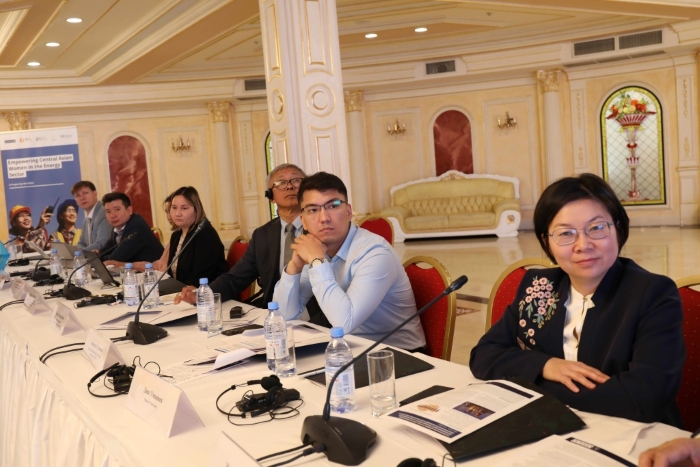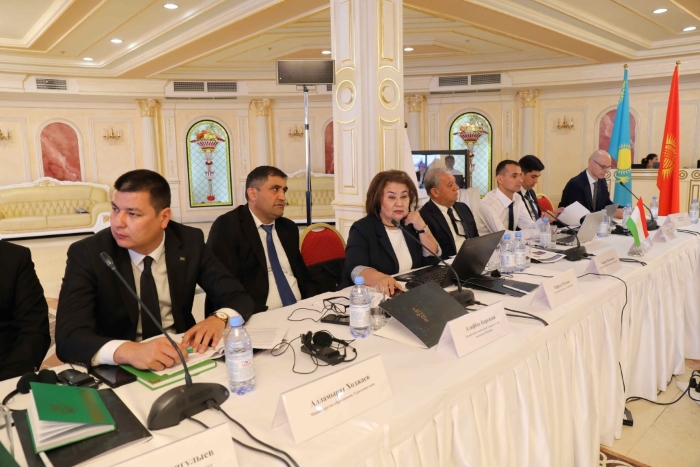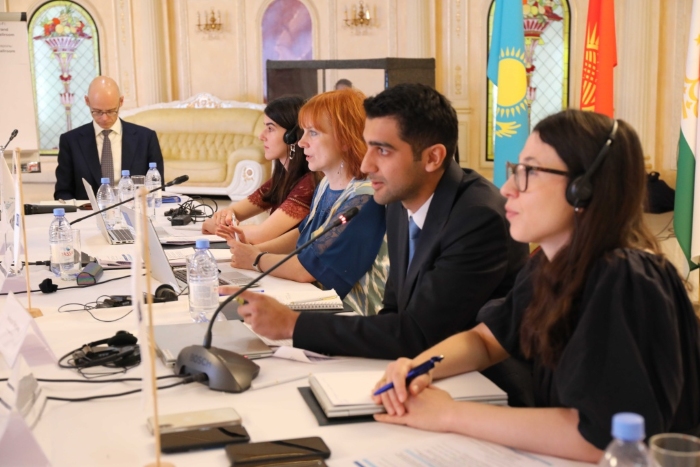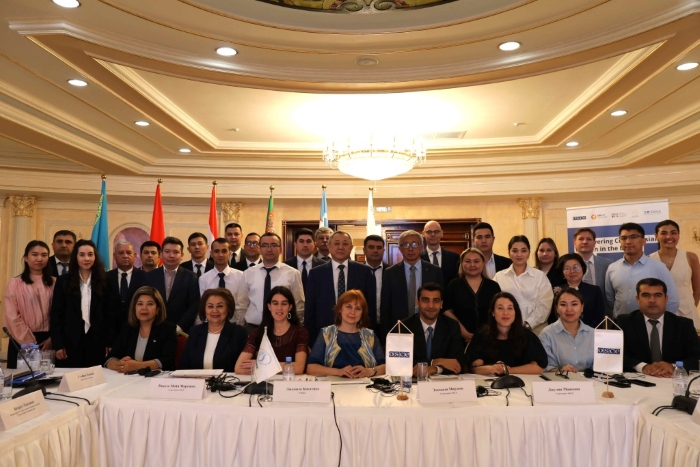Government officials, academic leaders, energy experts, and international partners from across Central Asia gathered on 22–23 May 2025 in Almaty for the Kick-off Meeting of the OSCE Regional Task Force on Education for Just and Inclusive Energy Transition (RTEET). The event marked the official launch of a regional platform aimed at aligning renewable energy (RE) education with the evolving demands of the labor market while promoting gender equality and inclusivity in the energy transition.
The two-day hybrid event was jointly organized by the Organization for Security and Co-operation in Europe (OSCE) and the Regional Environmental Centre for Central Asia (CAREC) as part of the OSCE project “Promoting Women’s Economic Empowerment in the Energy Sector in Central Asia”.


The RTEET platform brings together ministries of energy and education, universities, technical colleges, private sector actors, and development partners from Kazakhstan, Kyrgyzstan, Tajikistan, Turkmenistan, and Uzbekistan. Its core objectives include conducting a regional needs assessment, developing pilot curricula in renewable energy, and facilitating long-term cooperation between the education and energy sectors.
“The RTEET is more than a task force — it’s a catalyst for systemic change. By bringing together ministries, universities and companies, we are laying the groundwork for a future-ready, inclusive and skilled workforce that will drive Central Asia’s energy transformation,” said Alexey Kobzev, OSCE Regional Consultant for Needs Assessment, Kazakh German University.
Participants reviewed the preliminary results of the regional needs assessment conducted by the OSCE, which identified key skill gaps, institutional needs, and priorities for curriculum development across the five countries. The meeting also launched the Regional Steering Group (RSG) and the Regional Working Group (RWG), which will coordinate national-level engagement and technical input throughout the project’s implementation phase.
“Education plays a critical role in accelerating the energy transition — but it must be inclusive and adaptable. The OSCE supports countries in building the human capital needed for a green and just future, including by helping adapt education systems to evolving energy needs and by empowering women and young professionals in the renewable energy sector,” said Giulia Manconi, Senior Energy Security Adviser, OSCE Secretariat.
The RTEET Initiative will run from March 2025 to May 2026, with key milestones including the finalization of a regional RE curriculum module, pilot implementation in selected institutions, and policy consultations to support mainstreaming of renewable energy education in Central Asia. ///RECCA, 20 May 2025

